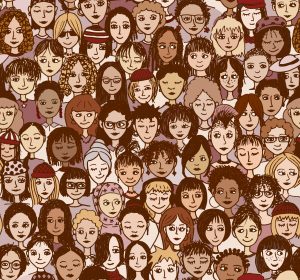Conversation on women’s issues, society, and culture, with coffee
By Greg Waldock, Web Editor, and Tania Arora, Staff Reporter
The final DSU Women’s Coffee House of the semester took feminism to an international level.
Concluding a series of coffee house discussions over the past few months, the Douglas Students’ Union organized its last Women’s Coffee House on November 28. Aahelee Bandyopadhyay, second-year Sociology and Anthropology student and Women Students’ Representative for the DSU, moderated the event. The guest speakers were Dr. Jamie Yard, a professor of Anthropology, and Dr. Lisa Smith, a professor of Sociology, both from the Faculty of Humanities and Social Sciences.
Snacks such as cookies and, of course, coffee were offered for all of the attendees. The event was held from 3:30 to 5 pm.
The discussions revolved around definitions of what “transnational feminism” actually is, criticisms of its application, and how transnational feminism and similar ideas can be applied to daily life, as well as personal experiences with feminism around the world.
Transnational feminism is the application of feminism globally, across borders and boundaries. It is a way of viewing feminism that ties specific local problems—such as colonialism, class warfare, and violent conflict—within a broader framework. Due to its expansive nature, it relies heavily on mass communication to enable different communities to speak together. As such, the role of social media in modern society became a major talking point and critique of transnational feminist theory.
Transnational feminism is believed to have grown out of anti-colonial and intersectional feminism. It was a way to critique the status quo of traditionally white, cis, straight feminism, as well as to provide a space for those who do not normally get a voice in these discussions.
As members of a committee dedicated to a socially-aware Humanities faculty, Dr. Yard and Dr. Smith discussed how they viewed transnational feminism and how it can be applied to Douglas College and its curriculum. The possibility of an entire course based around transnational feminism was brought up and may become a reality in the coming years.


